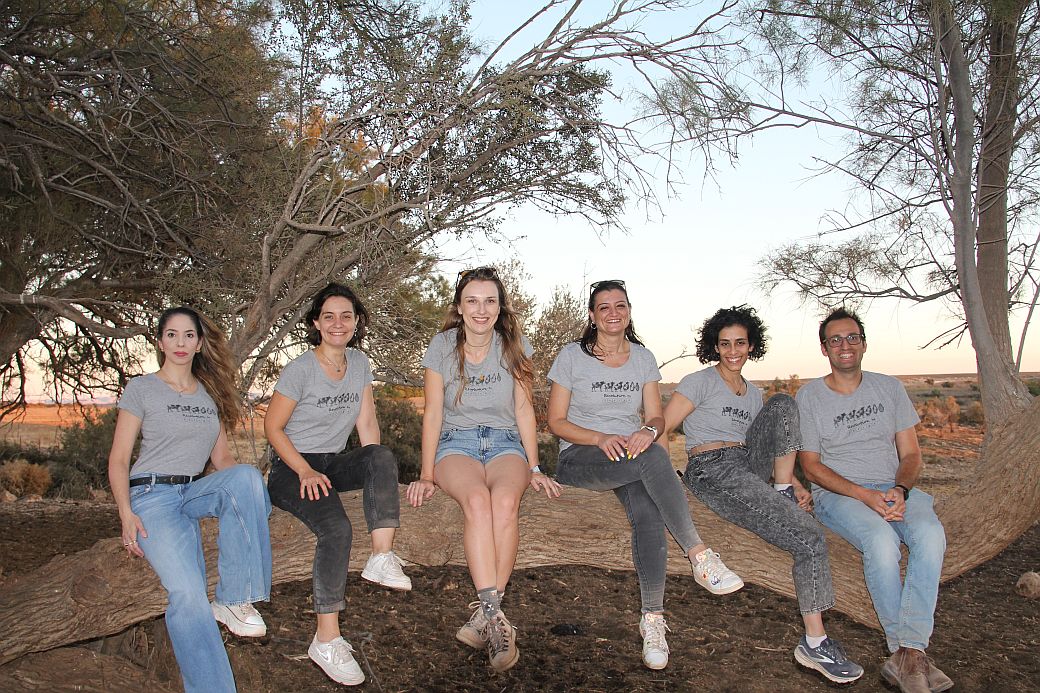Multiple startups can now make casein proteins without cows, with some planning market entry via branded consumer products and others exclusively focused on a b2b strategy. But do the unit economics add up and what will distinguish the winners from the losers in this space?
Israeli startup DairyX, a fairly recent entrant to the space, is currently producing casein proteins via precision fermentation at lab-scale, using genetically engineered yeast strains.
Like some others in the field such as California-based New Culture, DairyX uses minerals (phosphate and calcium) that under certain conditions, trigger the proteins to self-assemble into micelles, the structures formed naturally in cow’s milk that create the functionality customers expect from casein products (eg. melt and stretch for cheeses).
While other startups have created casein micelles, he says, DairyX attempts to more precisely replicate the process taking place in a cow, in which casein undergoes post-translational modifications that impact the formation and stability of casein micelles and can significantly alter their functionality in food applications.
“The question is, can you make the same post translational modifications (PTMs) you find in a cow,” founder and CEO Dr Arik Ryvkin tells AgFunderNews. “This is the core of our R&D, and we’ve submitted a patent to protect the mechanism and the molecule itself. We have to modify the yeast to make the same PTMs and this is not trivial at all.”
DairyX has also refined tech to enhance the gelation of its casein micelles, which it can produce with “one or two” proteins, rather than using all four casein proteins made by cows (alpha s1, alpha s2, kappa, beta), says Ryvkin, who founded DairyX in 2022 after working as director of foodtech and the circular economy at Israel’s Ministry of Economy and Industry.
“We have proven our ability to create a gel from reconstituted casein micelles. So basically it will function exactly as milk functions as a raw material for dairy products. We want the best gelation protocol/conditions for our casein micelles to gel since we keep improving them to be more functional, improving the strain to be more efficient, and the downstream process to increase the purity of our caseins. Each of these parameters can affect gelation.”
While Ryvkin has a background in immunology, he has assembled a team with relevant expertise, including Dr. Maya Bar-Zeev, who studied casein micelles during her PhD under the supervision of Prof. Yoav D. Livney, now an advisor to DairyX; and Galit Kuznets, who has worked at fellow animal-free dairy startup Remilk and industrial fermentation specialist Sigma-Aldrich.
“A significant challenge that dairy companies face is adapting their production facilities to use new ingredients. This is why we created a drop-in replacement for milk that does not require process changes or retooling.” Dr. Maya Bar-Zeev, head of product development and downstream processing, DairyX
‘Exceptionally high casein yields in short time frames’
When it comes to unit economics, he says, “If you’re going to reach price parity [with milk proteins from cows] and beyond, you have to have a yeast strain which is super-efficient, that can secrete [casein proteins] like crazy.”
And DairyX has developed yeast strains that “produce exceptionally high casein yields in short timeframes,” claims Ryvkin, who says the company is already achieving titers on a par with others in the industry despite its early stage, although he would not share numbers.
To get there, he says, “We’re not introducing every change rationally, but using an evolution-based approach to generate the best secreting strain possible. So it will first allow us to get a super secreter [high titers], and second, one that will allow us to produce the proteins pretty fast [high productivity].
“We’ve developed a fast-tracked screening process that simulates evolution to locate super-producers of protein from among millions of yeast strains. Our machine-learning models simulate fermentation to determine optimal fermentation conditions.”
Scaling up
According to Ryvkin, DairyX has performed a techno-economic analysis and is confident the unit economics of its process will make sense at scale although he acknowledges this may require innovations such as continuous fermentation to “radically drive costs down.”
“Obviously precision fermentation is much easier if you’re making very high value proteins [such as human lactoferrin],” he concedes, “But we want to make a real impact [by displacing industrialized animal agriculture].”
So how does he envisage scaling up, given that investors have proved unwilling to fund large capex projects for what they see as an untested market, while working with co-manufacturers both dents margins and can be fraught with problems?
“In the long run, we would like to set up a joint venture with an ingredient company or a dairy company where we would be responsible for bringing the technology, and they will be responsible for CapEx and running large-scale production, which is not our area of expertise,” he says.
“But we understand that to get to that point, we need to do some serious de-risking, meaning we will have to demonstrate we can produce at commercial scale [via co-manufacturers] and sell to clients. So we have been talking to various CMOs and CDMOs about scaling up, which is our focus at the moment.”

Winning in a commoditized market
When it comes to demand for animal-free dairy ingredients, he says, potential customers are coming at it from different angles, with some looking to reduce scope 3 emissions by using fewer animal-derived products, and others “believing it will be the future” as demand for dairy outstrips supply.
“The biggest interest is in cheese, where the margins are bigger, then yogurt, and then there are people wanting to make hybrid products and some that want completely animal-free products,” says Ryvkin, who has signed a letter of intent with CSM Ingredients and several other dairy partners.
Ultimately, he argues, animal-free dairy proteins will be commodities, so the winning suppliers will be those that can produce high-quality, functional products at the lowest cost.
While companies producing dairy proteins via molecular farming (engineering potatoes, soy, or corn to produce said proteins) don’t have the CapEx costs associated with large-scale precision fermentation, R&D cycles are longer, allergen management can be a challenge, and downstream processing costs are a factor if you want to get highly purified proteins, he claims.
“For us downstream processing and purification is pretty easy as the proteins are secreted [into the fermentation broth by the microbes]. We also take up a far smaller footprint [although production is not decoupled from agriculture, as DairyX’s yeast cells are fed on sugars].”
Funding
While some pioneering precision fermentation players have burned through a lot of cash without a huge amount to show for it in recent years, investors and rival startups have learned valuable lessons from their trials and tribulations, said Ryvkin, who has raised around $2m to date from investors including Peregrine Ventures, Jesselson, Phibro Animal Health Corporation, the Israel Innovation Authority and Incentive – Peregrine’s Incubator.
“Investors are more wary now, but I wouldn’t say that’s a bad thing; they just evaluate companies in this space much more carefully now.”
Further reading:





